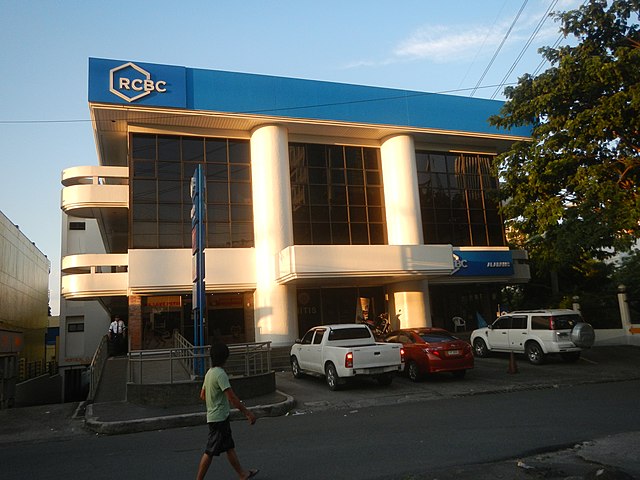Rizal Commercial Banking Corporation (RCBC), one of the Philippines’ leading banks, is anticipated to encounter a significant rise in bad loans over the next 12 to 18 months as it accelerates its growth into riskier retail loans, according to Moody’s Ratings.

Facade shot of the RCBC Ayala Alabang branch in Muntinlupa
The rating agency has affirmed RCBC’s Baa3 ratings but has revised its outlook from positive to stable, signalling concerns over the bank’s ability to maintain its improved capital position.
In its latest report, Moody’s highlighted that the bank’s improvement in capitalization, following a capital infusion from Sumitomo Mitsui Banking Corporation (SMBC) in July 2023, is unlikely to be sustained.
“The change in outlook to stable from positive reflects our expectation that RCBC’s improvement in capitalization following SMBC’s capital infusion is unlikely to be sustained,” Moody’s warned.
The report further notes that while RCBC’s capital ratios have strengthened, the bank’s non-performing loans (NPL) ratio is expected to remain high, marking one of the weakest among its domestic peers. “RCBC’s NPL coverage is also one of the weakest among its domestic-rated peers, providing a smaller buffer against expected loan losses,” the rating agency added.
In 2023, RCBC was named the Philippines’ “Best Bank for Digital Solutions” by Asiamoney for the fourth year in a row, further solidifying its position as the undisputed digital banking trailblazer in the country.
RCBC’s Rising NPL Ratio and Asset Quality Concerns
Moody’s projects that RCBC’s NPL ratio will hover between 3.5% to 3.7% over the next 12 to 18 months, higher than pre-pandemic levels. This increase is attributed to the bank’s strategic shift towards higher-yielding but riskier retail and small and medium-sized enterprise (SME) segments. The accelerated growth in these areas poses potential risks to RCBC’s asset quality, especially as the new loans are unseasoned and may not yet demonstrate stable repayment patterns.
“Its new and unseasoned retail and SME loans could pose risks to its asset quality given the bank’s fast growth, whilst its large loans to corporates will remain a concentration risk,” Moody’s cautioned.
Despite the capital infusion from SMBC, RCBC’s Common Equity Tier 1 (CET1) ratio saw a decline to 13.7% as of March 31, 2024, from a post-infusion high of 14.7%, as loan growth outpaced internal capital generation in the first quarter of the year. This decline in the CET1 ratio underscores the challenges RCBC faces in maintaining a robust capital buffer amid rapid loan expansion.
On the profitability front, RCBC’s return on assets (ROA) is expected to remain stable at around 0.9% in 2024. The bank’s strategy to sell assets, such as foreclosed properties, has contributed significantly to its operating income, accounting for 8% of total operating income in 2023. This approach has helped offset the increasing share of retail and SME loans in its portfolio.
Liquidity and Deposit Franchise
RCBC’s liquidity position remains strong, with a liquidity coverage ratio of 170% as of the end of 2023. This high level of liquidity provides a cushion against potential financial shocks and ensures the bank can meet its short-term obligations.
However, the bank’s deposit franchise remains modest, with a moderate reliance on market funds, which accounted for 7.2% of tangible banking assets at the end of 2023. This reliance on market funds highlights the need for RCBC to strengthen its deposit base to ensure more stable funding sources.
As the bank navigates these challenges, the focus will be on balancing growth with risk management. The bank’s strategic shift towards retail and SME lending, while potentially more profitable, comes with higher risks that need to be carefully managed to maintain asset quality and capital adequacy.
The outlook from Moody’s serves as a cautionary note for the bank, emphasizing the need for prudent risk management practices and the importance of sustaining capital improvements to weather potential economic uncertainties.
RCBC’s ability to adapt to these challenges and maintain its financial health will be crucial in determining its long-term success and stability in the competitive Philippine banking sector. The bank’s efforts to enhance its digital offerings and expand its retail and SME segments will need to be balanced with a strong focus on maintaining asset quality and capital strength to ensure sustainable growth.







